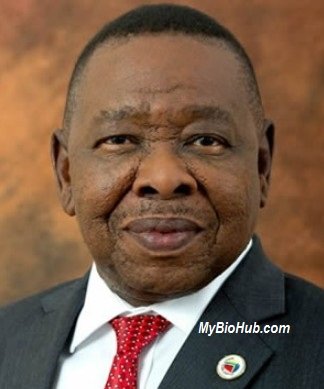Dr. Bonginkosi Emmanuel “Blade” Nzimande was born on 14 April, 1958. He was one of the three children of Nozipho Alice and Phillip Sphambano, a Shangaan herbalist from Mozambique. He is a South African politician who was Minister for Higher Education and Training from 2009 to 2017. He has been the General Secretary of the South African Communist Party since 1998. He has a doctorate degree in philosophy specializing in sociology.
He came out strongly against proposals for nationalization at the COSATU conference in June 2011, stating that it is not “inherently progressive” as it depended on which class interests were being advanced.
Nzimande attended the Roman Catholic School, Henryville, and then Plessiers Lower Primary School before going to Mthethomusha School in Edendale, the first school in the area established under the new Bantu education system. He matriculated in 1975 at Georgetown High, Edendale.
In 1976 Blade enrolled at the University of Zululand to study towards a BA degree, majoring in Public Administration and Psychology. He became involved in student activity, including a food boycott and demonstrations against the award of an honorary doctorate to Prince Mangosuthu Buthelezi in May 1976. During that time the Black Consciousness Movement-oriented South African Students’ Organization (SASO) was prominent on campus, but Nzimande’s political views later shifted towards the Congress Alliance.
Looking into his work profile; In January 1982 Nzimande moved to Durban, and at that stage was active in the Dambuza Youth Organisation which affiliated to the United Democratic Front (UDF) after its launch in 1983. In Umlazi he began to work on educational issues in mid-1986 and also held clandestine Marxist study classes with the youth.
Blade lectured until June 1987 and then joined the University of Natal, Durban to lecture in the Psychology Department. There he became involved in the Culture and Working Life Project, and initiated the cultural activities of the Dumbuzo Cultural Organisation which produced a play on violence, Koze Kube Nini, performed in the townships. He also wrote various articles on violence, and assisted in the presentation of seminars.


